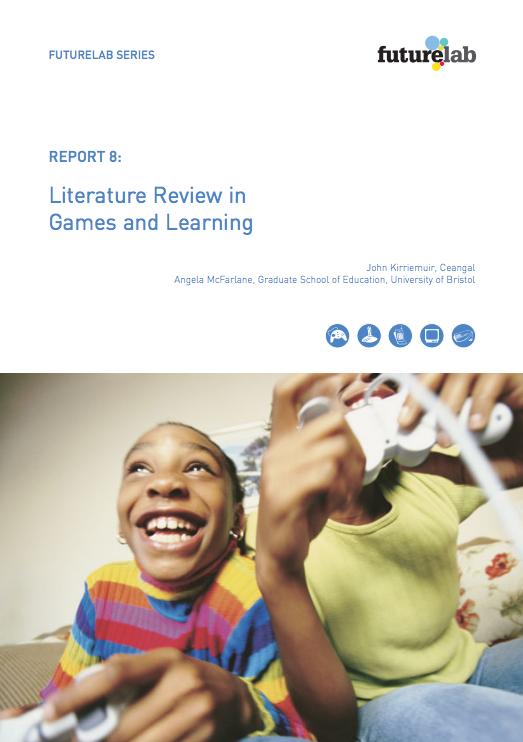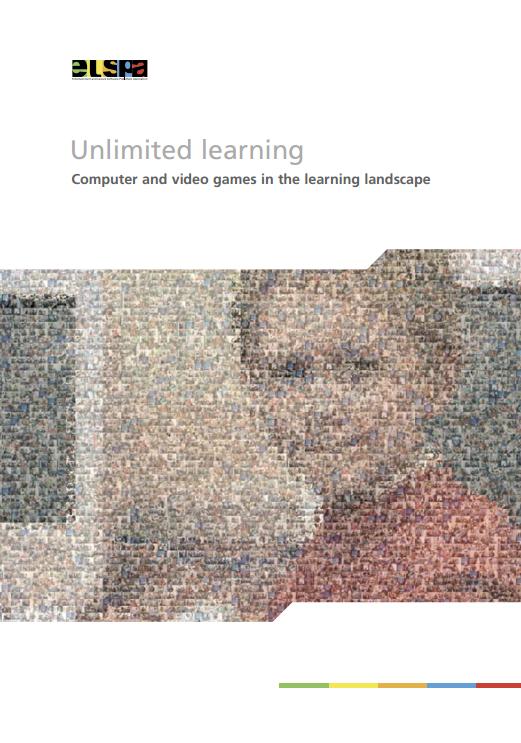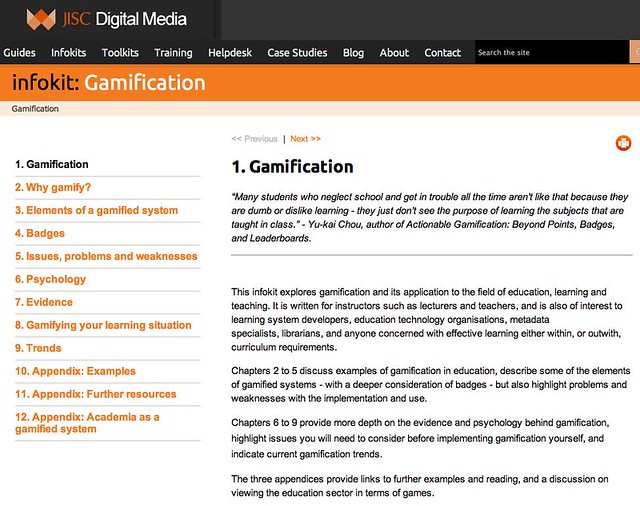A few of the works I’ve undertaken for clients.
Collections
1) The Virtual World Watch service, partially funded by the Eduserv Foundation, produced a collection of survey reports, presentations, podcasts, articles and other materials between 2007 and 2012.
2) A column was written for every 2012 issue of CILIP Update, the bi-monthly magazine for UK librarians and information professionals. Each article introduces various aspects of games, and their relevance to libraries, librarians and information professionals.
2004: Literature Review in Games and Learning
This report was commissioned by NESTA Futurelab and co-authored with Professor Angela McFarlane. The report formed an introduction to opinion on the role of computer games in supporting children’s learning inside and out of school.
The report contains a summary of the (2004) state of the computer and video gaming industry, market and culture, an overview of significant developments in game research and the educational relevance of video games, and a summary of the literature resulting from this research. It can be downloaded as a pdf.
2006: Unlimited learning: computer and video games in the learning landscape
The report was commissioned by the Entertainment and Leisure Software Publishers Association (ELSPA) and co-authored with Hilary Ellis, Professor Stephen Heppell, Aleks Krotoski and Professor Angela McFarlane.
The report presents an overview of gaming and the gaming sector, the theoretical foundations of how games can be used in learning, many examples of video game-centric learning in UK classrooms, and some of the problems and obstacles with using this media in schools. The report also discusses games within lifelong and adult learning, examples of game-based learning outside the UK, and gaming within the context of technological changes and opportunities in the school sector. It can be downloaded as a pdf.
2007: Digital Games in Libraries and Information Science
This presentation, initially given as a guest speaker at the University of Tampere in Finland but subsequently repeated in Sweden, Norway and the USA, provided an overview of some of the ways computer and video games were relevant to libraries, librarians, and the information science sector.
The presentation opened with a course-correction to a few of the tired stereotypical images of librarians, and a digression into the wider purpose(s) of the library. The main content focused on the “10 ways librarians and digital games collide”, such as circulating games and supporting materials, empowering literacy through games and gameplay, and providing information services through virtual worlds (i.e. going to where the potential and actual library patrons “are”).
The presentation concluded with an overview of relevant resources, a comparison of the attributes of digital information services and digital games, and common areas of research. It can be viewed or downloaded from the above insert, or from Slideshare.
2009: Learning through falling: Second Life in UK academia
This was the keynote presentation at the Learning in Virtual Worlds conference, organised by Jisc RSC Northern and hosted by the University of Sunderland.
The presentation discussed the suitability of virtual worlds in education, and examples of their use in UK universities and colleges for teaching, learning and research. It discussed the problems encountered by some academics when negotiating with university of college IT services for virtual world access, some evidence for virtual worlds being useful in some aspects of teaching, how to deal with sceptics, and how to obtain funding.
The presentation can be viewed or downloaded from Slideshare.
2015: Gamification infokit
This infokit was commissioned by Jisc Digital Media, who required a resource which was introductory and had significant depth. The infokit incorporated a wide range of viewpoints, and demonstrated that gamification in education cannot be reduced to a simple good/bad binary.
The text is divided into 9 chapters and three appendices, containing 30K+ words, 200+ links to external resources, and an index of 40+ described gamified systems. While the central focus is on gamification in education, the infokit sometimes takes a look at non-learning systems. Particular attention is given to components of gamified systems, badges, and the perils of gamification.
The infokit also covers psychology and evidence, trends, and a pathway for deciding how to gamify your service. The infokit finishes with an offbeat reframing of academia as a gamified system.
The infokit is accessible through the Internet Archive (may not be available via all ISPs).
![]()


